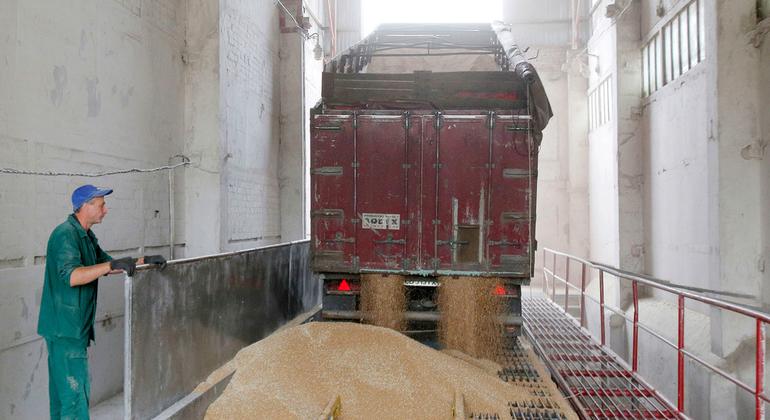As part of ongoing international efforts to address growing concerns over global food security linked to the war in Ukraine, a top UN official on Wednesday urged countries not to slap restrictions on the export of foodstuffs that are in such short supply elsewhere.
“Food insecurity and high prices can become a trigger for instability,” said Qu Dongyu, Director-General of the UN Food and Agriculture Organization (FAO).
Addressing the “Mediterranean Dialogue on Food Crisis” in Rome, Mr. Qu insisted that “we must keep the global food trade system open and ensure that agrifood exports are not restricted or taxed”.
Club Med
The Mediterranean Sea region includes 22 countries on three continents, many of which rely on cereal imports from Ukraine to feed their population, the FAO top official said. Most countries in the region had shown an increasing food import trend to meet domestic consumption needs even prior to the war in Ukraine, he added.
Today, the current global situation is “very complicated”, Mr. Qu said, his comments coming after more than 100 days of war in Ukraine that have cut off exports of millions of tonnes of wheat, cereals and vegetable oil from the country’s Black Sea ports since the Russian invasion on 24 February.
The war has also prompted targeted international sanctions on Russia that have in turn hampered the distribution of its own substantial agricultural output and fertilizers – which farmers rely on around the world.
Solidarity is key
To counter these challenges, countries in the Mediterranean should work together to mitigate food security risks, Mr. Qu urged delegates.
“The increase in energy and fertilizer prices is putting at risk the next harvest globally,” the FAO top official insisted, adding that the lack of access to fertilizer and fuel represented “a particular risk for countries where low natural soil fertility means that chemical fertilizer is often essential for food production”.
That message was echoed by Italy’s Minister of Foreign Affairs, Luigi Di Maio, and Germany’s Svenja Schulze, Minister for Economic Cooperation and Development, who warned that the world was facing “the worst food crisis in decades”.
Sky high prices
Latest data from FAO’s Food Price Index – which reached an all-time high in March and which has remained at elevated levels – has confirmed the difficulties that developing countries face in particular in providing for their people.

© FAO/Luis Tato
A woman harvests peas on a farm in Moyale, Kenya.

